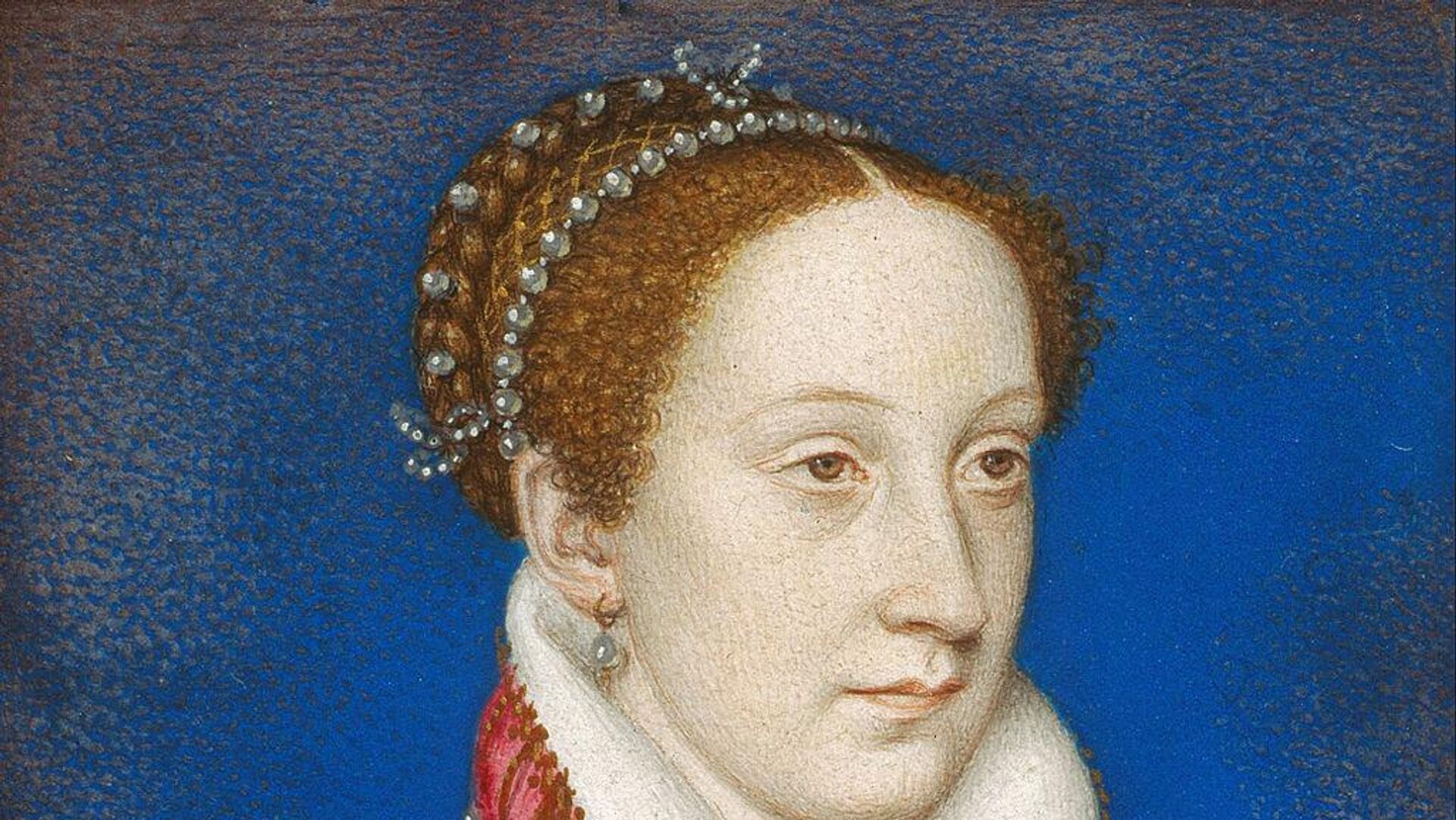https://sputnikglobe.com/20230208/truly-exciting-discovery-officials-decipher-letters-belonging-to-mary-queen-of-scots-1107061739.html
'Truly Exciting Discovery': Officials Decipher Letters Belonging to Mary Queen of Scots
'Truly Exciting Discovery': Officials Decipher Letters Belonging to Mary Queen of Scots
Sputnik International
An international code-breaking team has successfully deciphered more than 50 cryptic letters discovered in French archives. The team discovered that the letters were written by Mary, Queen of Scots, during her imprisonment.
2023-02-08T04:24+0000
2023-02-08T04:24+0000
2023-02-14T19:14+0000
science & tech
letter
cipher
study
https://cdn1.img.sputnikglobe.com/img/07e7/02/08/1107061563_0:0:1024:577_1920x0_80_0_0_25499344ca66e47da2febd0681ca4bd4.jpg
As part of the DECRYPT project, a team of specialists combed through various archives in search of encrypted documents. While examining the archives of the French National Library, they found 57 documents of unknown authorship written in an unknown cipher.Relying on a combination of computerized cryptanalysis, manual code cracking, and linguistic and contextual analysis, the team was able to successfully decode the correspondence. The documents contained only graphical characters (more than 150,000 in total), which required the team to use a specially designed graphical user interface tool.By determining the overall structure of the letters and the language in which they were written, investigators concluded the letters were written by Mary to the then- French ambassador, Michel de Castelnau. Knowing this and some of the letters of the cipher, the team then identified symbols for names, places and the 12 months of the year.Of the 57 letters, 54 were addressed to Castelnau and all were written between May 1578 and May 1584 (one partially encrypted letter is dated October 30, 1584). Eleven of the newly deciphered letters are dated 1580-1581.As for topics, Mary often wrote about how to secure their communication channel so that she could maintain her network of allies in France. They also discussed Elizabeth I's proposed marriage and Mary warned Castelnau about Elizabeth's plans to harm France.Mary also accused the Earl of Leicester and others of plotting against her, and Elizabeth of not negotiating in good faith to free Mary. According to the authors, she also expresses her disapproval of Walsingham, Elizabeth's spy master, and warns that some people working for her may be his agents."In our paper, we only provide an initial interpretation and summaries of the letters. A deeper analysis by historians could result in a better understanding of Mary’s years in captivity," says Lasry. "It would also be great, potentially, to work with historians to produce an edited book of her letters deciphered, annotated, and translated."
Sputnik International
feedback@sputniknews.com
+74956456601
MIA „Rossiya Segodnya“
2023
News
en_EN
Sputnik International
feedback@sputniknews.com
+74956456601
MIA „Rossiya Segodnya“
Sputnik International
feedback@sputniknews.com
+74956456601
MIA „Rossiya Segodnya“
mary stuart's correspondence, mary stuart in years of imprisonment, secret celebrity ciphers, past ciphers, team of scientists unravel ciphers life of mary stuart
mary stuart's correspondence, mary stuart in years of imprisonment, secret celebrity ciphers, past ciphers, team of scientists unravel ciphers life of mary stuart
'Truly Exciting Discovery': Officials Decipher Letters Belonging to Mary Queen of Scots
04:24 GMT 08.02.2023 (Updated: 19:14 GMT 14.02.2023) An international code-breaking team has successfully deciphered more than 50 cryptic letters written by Mary, Queen of Scots, during her imprisonment, and were intended for her trusted allies. The publication is timed to coincide with the anniversary of Mary's execution on 8 February 1587.
As part of the DECRYPT project, a team of specialists combed through various archives in search of encrypted documents. While examining the archives of the French National Library,
they found 57 documents of unknown authorship written in an unknown cipher.
"Upon deciphering the letters, I was very, very puzzled and it kind of felt surreal," says lead author George Lasry, computer scientist and cryptographer. "We have broken secret codes from kings and queens previously, and they’re very interesting but with Mary Queen of Scots it was remarkable as we had so many unpublished letters deciphered and because she is so famous. This is a truly exciting discovery."
Relying on a combination of computerized cryptanalysis, manual code cracking, and linguistic and contextual analysis, the team was able to successfully decode the correspondence. The documents contained only graphical characters (more than 150,000 in total), which required the team to use a specially designed graphical user interface tool.
By determining the overall structure of the letters and the language in which they were written, investigators concluded the letters were written by Mary to the then- French ambassador, Michel de Castelnau. Knowing this and some of the letters of the cipher, the team then identified symbols for names, places and the 12 months of the year.
Of the 57 letters, 54 were addressed to Castelnau and all were written between May 1578 and May 1584 (one partially encrypted letter is dated October 30, 1584). Eleven of the newly deciphered letters are dated 1580-1581.
As for topics, Mary often wrote about how to secure their communication channel so that she could maintain her network of allies in France. They also discussed Elizabeth I's proposed marriage and Mary warned Castelnau about Elizabeth's plans to harm France.
Mary also accused the Earl of Leicester and others of plotting against her, and Elizabeth of not negotiating in good faith to free Mary. According to the authors, she also expresses her disapproval of Walsingham, Elizabeth's spy master, and warns that some people working for her may be his agents.
"In our paper, we only provide an initial interpretation and summaries of the letters. A deeper analysis by historians could result in a better understanding of Mary’s years in captivity," says Lasry. "It would also be great, potentially, to work with historians to produce an edited book of her letters deciphered, annotated, and translated."

